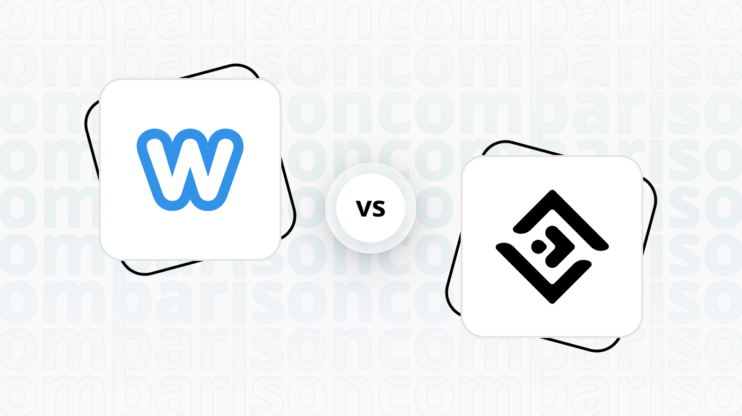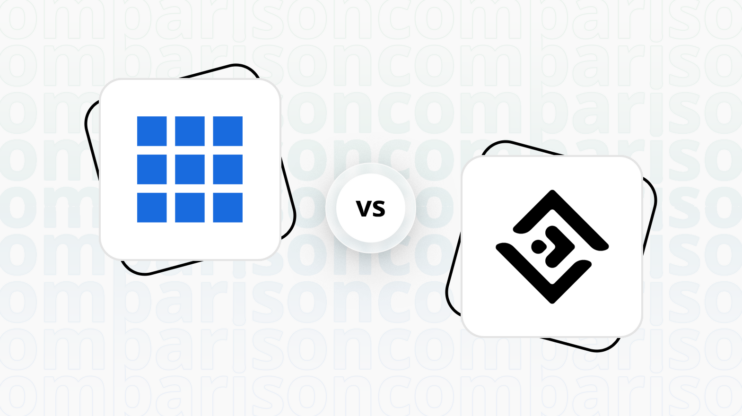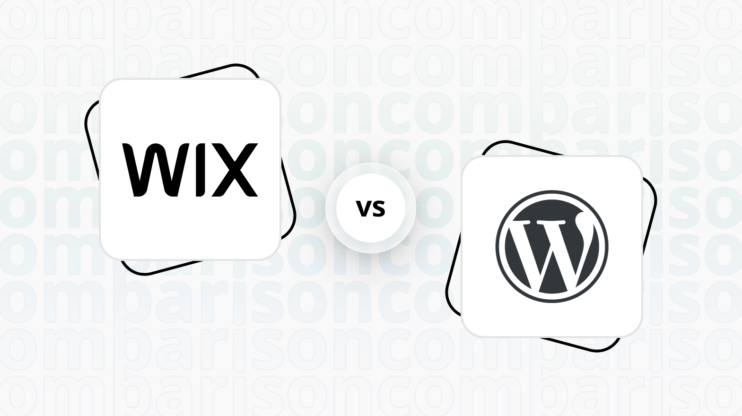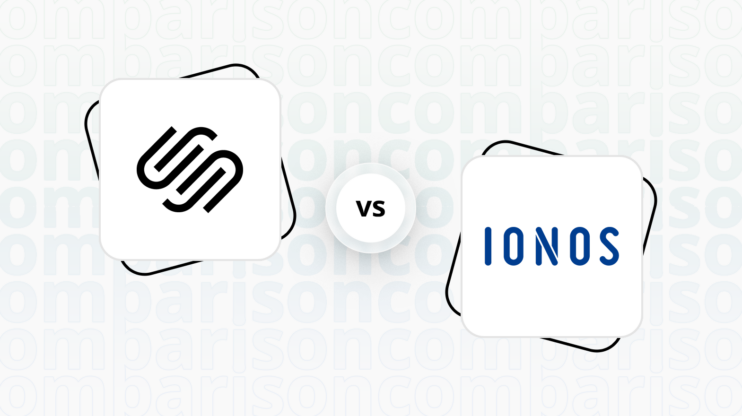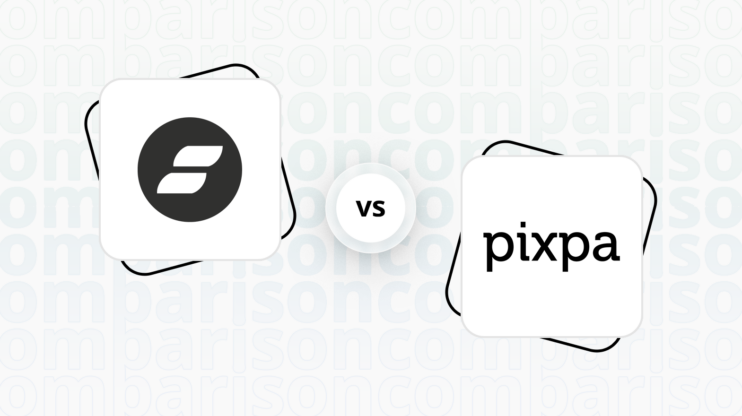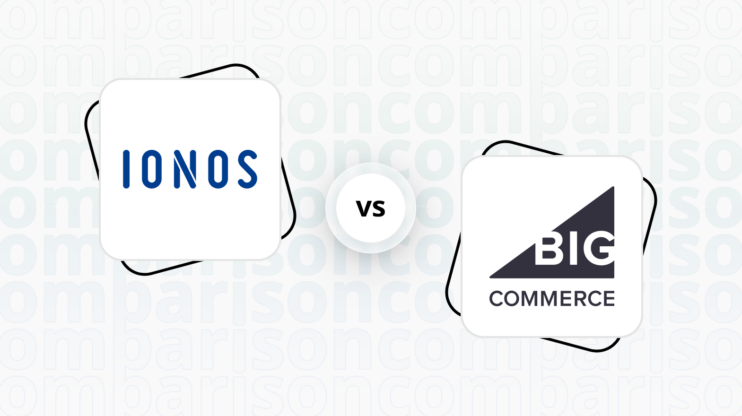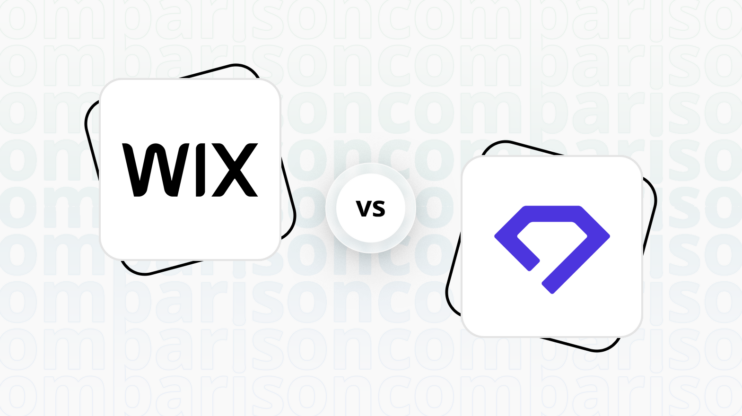Final verdict
Weebly and BlueHost offer distinct advantages, catering to different user needs and preferences.
-
Weebly (Overall Grade: 7.3/10)
excels with its user-friendly design and comprehensive website building tools. It stands out for its drag-and-drop simplicity, robust ecommerce features, and effective website speed optimization. Weebly is particularly suited for users looking for an all-in-one solution with a focus on ease of use and ecommerce capabilities. Its platform is ideal for small to medium-sized businesses and individuals seeking a straightforward way to create and manage their online presence. -
BlueHost (Overall Grade: 6.8/10)
, while slightly trailing behind Weebly in the overall score, shines in its hosting quality, plugins and integrations, and marketing features, thanks to its seamless integration with WordPress. It offers a more technical platform that caters to users who prioritize extensive customization options and access to a vast ecosystem of WordPress plugins and themes. BlueHost is a solid choice for users who are comfortable with WordPress and are looking for robust hosting solutions alongside their website building needs.

|

|
|
|---|---|---|
|
Design functionalities & templates |
7.4 |
7.2 |
|
Ease of use |
8.1 |
8.2 |
|
Ecommerce |
7.1 |
6.8 |
|
Website Editors |
7.6 |
7.3 |
|
Product testing options |
8.3 |
6.2 |
|
Price |
8.4 |
7.2 |
|
Hosting quality |
7.7 |
8.0 |
|
Website speed optimization |
7.9 |
6.5 |
|
Plugins and integrations |
7.5 |
9.1 |
|
Marketing features |
7.1 |
7.3 |
|
Customer support |
7.3 |
7.6 |
|
Security |
8.3 |
8.3 |
|
AI capabilities |
1.8 |
1.5 |
|
User Management |
6.5 |
4.4 |
| Overall |
7.3 |
6.8 |
Best for ecommerce
 7.1
7.1
 6.8
6.8
Verdict
: Weebly offers a more user-friendly approach with essential ecommerce features suitable for small to medium-sized businesses, while BlueHost caters to those looking for deeper integration with WordPress and WooCommerce for a more customizable ecommerce experience.
-
Weebly
: Provides a straightforward ecommerce platform with features like unlimited product listings, secure checkout, and basic analytics. It’s ideal for users who prefer simplicity and ease of use but may lack some advanced features found in more specialized platforms. -
BlueHost
: Focuses on offering a robust ecommerce solution through its integration with WooCommerce, allowing for extensive customization and access to a wide range of WordPress plugins. This makes it a better fit for users with specific ecommerce needs and those comfortable with WordPress.
Best for informational & business websites
 7.9
7.9
 7.5
7.5
Verdict
: Weebly slightly edges out BlueHost for informational and business websites, thanks to its user-friendly design and slightly higher score in this category.
-
Weebly
: With a score of 7.9, Weebly shines for informational and business websites, offering a user-friendly interface, a variety of themes, and robust features that cater to both beginners and experienced users. Its emphasis on high-quality, responsive design templates and seamless integration with third-party apps makes it a strong contender for creating professional and effective websites. -
BlueHost
: Scoring 7.5, BlueHost remains a solid choice, especially for users who prefer WordPress. It offers a wide range of customization options through its integration with WordPress, making it suitable for a diverse range of informational and business websites. However, it slightly lags behind Weebly in terms of the specific score for informational and business websites.
Detailed comparison
Design functionalities & templates
Design FunctionalitiesRepresents how well each platform allows for creative design and customization of websites.Score Components:
- Template Variety (30%): Range and quality of design templates.
- Customization (30%): Flexibility and options for design alterations.
- User Interface (20%): Ease and intuitiveness of the design process.
- Responsiveness (10%): Adaptability to different devices and screen sizes.
- Innovation (10%): Unique design features and tools.
 7.4
7.4
 7.2
7.2
🏆
Winner: Weebly.
Weebly offers a more user-friendly platform with a higher score in design functionalities and templates.
Weebly offers a curated selection of templates, numbering in the low hundreds, which is fewer than some competitors. However, the emphasis is on high-quality, professionally designed templates covering various categories such as business, ecommerce, portfolio, blog, personal, and events. Weebly’s templates are praised for their clean, modern, and responsive design, with easy customization options for colors, fonts, layout, images, and content.
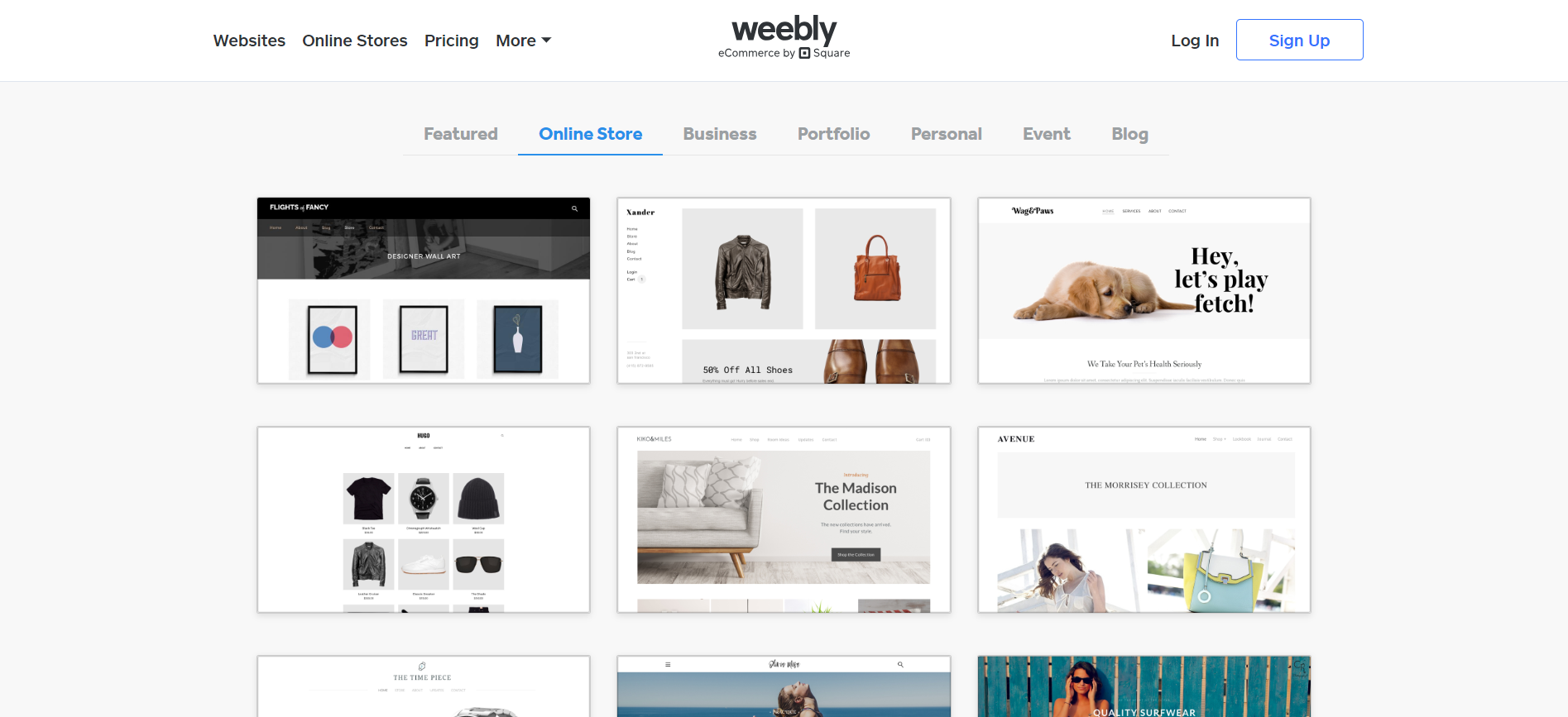

On the other hand, BlueHost’s WordPress website builder offers over 300 pre-installed templates and designs to cater to the diverse needs of its users, ensuring that there’s something for everyone, regardless of the niche or industry. With hundreds of customizable templates available, users can easily find a design that aligns with their vision and brand identity. These templates are designed to be responsive and SEO-friendly, enhancing the user experience and visibility of the websites. From simple blog layouts to complex ecommerce designs, BlueHost provides a comprehensive selection to help users create professional-looking websites with ease.
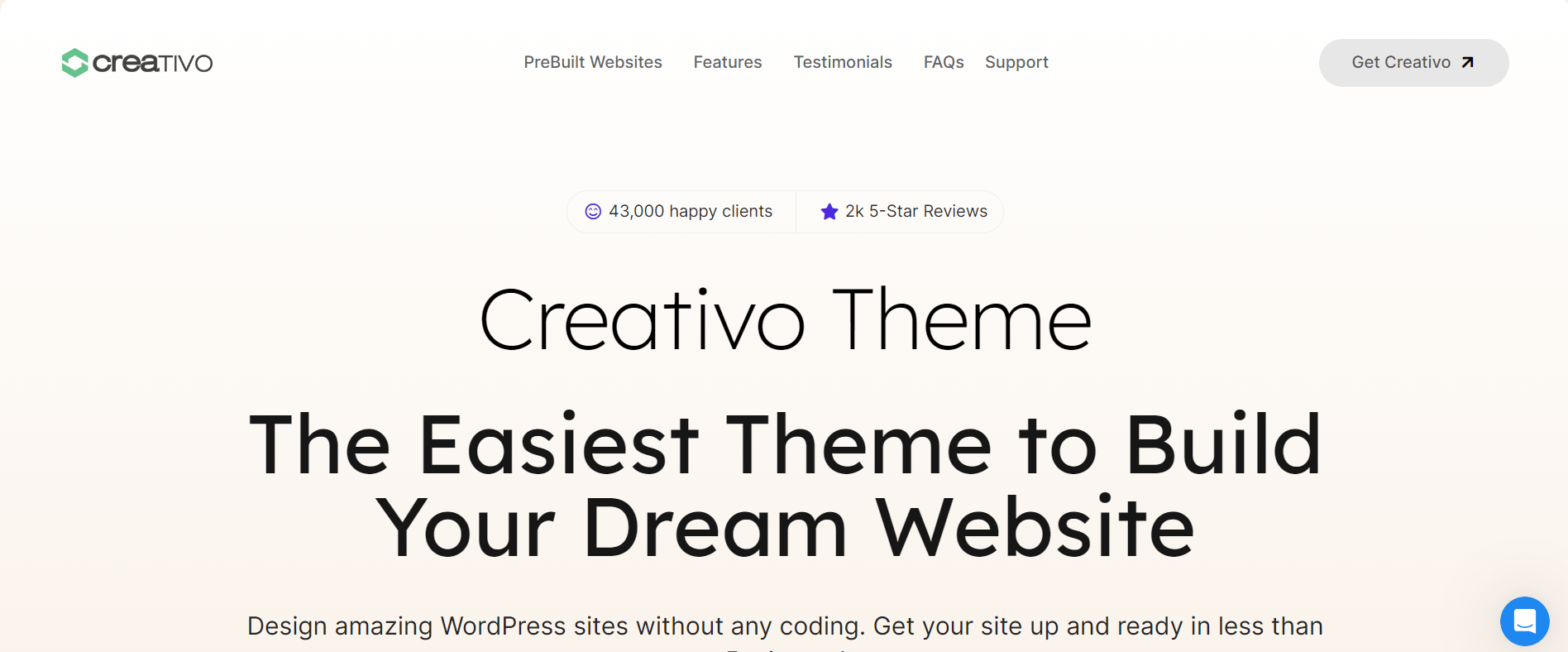
Get a head start on website creation with AI
Create a custom website tailored to your business needs 10X faster with 10Web AI Website Builder!
Ease of use
Ease of useReflects the platform’s overall user-friendliness.Score
Components:
- Learning curve (40%): Quickness and ease of getting started.
- Interface design (30%): Simplicity and intuitiveness of layout.
- User guidance (20%): Quality of tutorials and support.
- Flexibility (10%): Adaptability to various user skills.
 8.1
8.1
 8.2
8.2
🏆 Winner: BlueHost
. With a score of 8.2, BlueHost slightly edges out Weebly, which scored 8.1. Both platforms are praised for their user-friendly interfaces and drag-and-drop features, but BlueHost’s simplicity and efficiency give it the edge in this category.
Learning Resources
🏆 Winner: BlueHost
. While both platforms offer solid learning resources, BlueHost’s WordPress Academy provides comprehensive courses on various topics, making it a more robust learning resource.
For ecommerce
EcommerceMeasures the platform’s effectiveness in supporting online business activities.Score Components:
- Ecommerce themes and templates (20%): Variety and design of templates.
- Product management (25%): Ease of managing and organizing products.
- Payment options (25%): Variety and convenience of payment methods.
- Ecommerce features (20%): Features for managing an ecommerce store.
- Integration (10%): Compatibility with external e-commerce tools and services.
 7.1
7.1
 6.8
6.8
Weebly and BlueHost both offer ecommerce capabilities, but they cater to different needs. Weebly’s ecommerce solution is user-friendly, offering features like unlimited product listings, secure checkout, customizable shipping options, and discount promotions. However, it has limitations such as less design flexibility in templates, certain advanced features being available only with paid plans, transaction fees on the free plan, and the absence of built-in marketing tools.
On the other hand, BlueHost’s website builder platform offers various ecommerce features designed to help users build and manage online stores effectively. These features include integration with WooCommerce for WordPress sites, allowing for the easy setup of product listings, shopping carts, and secure payment gateways. The platform also supports inventory management, shipping options, and tax calculations. However, one potential downside of using BlueHost for ecommerce could be its learning curve for those unfamiliar with WordPress and WooCommerce.

|

|
|
|---|---|---|
|
Ecommerce themes and templates |
6.5 |
6.5 |
|
Product page customization |
6.8 |
7.0 |
|
Payment processing and commissions |
7.0 |
6.8 |
|
POS capabilities |
6.0 |
0.0 |
|
Payment gateways |
7.5 |
7.5 |
|
Product numbers |
7.0 |
6.0 |
|
Additional ecommerce features |
6.7 |
6.5 |
Weebly ecommerce features:
- Unlimited products
- Inventory management
- Product reviews and ratings (Paid plans)
- Secure checkout
- Shipping options
- Abandoned cart recovery (Paid plans)
- Basic analytics
- SEO tools
- Marketing integrations (Paid plans)
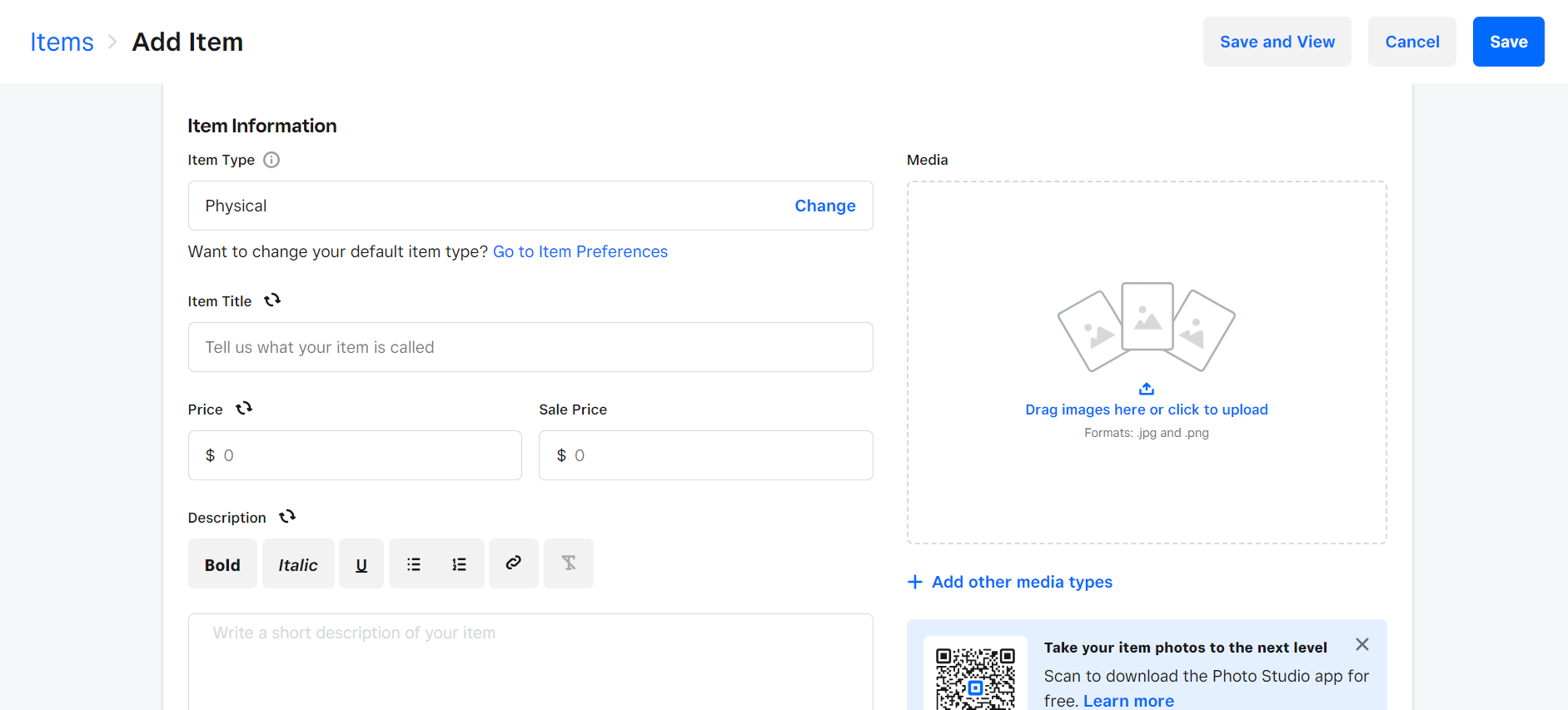
BlueHost ecommerce features:
- Product Listings
- Shopping Carts
- Secure Payment gateways
- Shipping Options and Tax Calculations
- Inventory Management
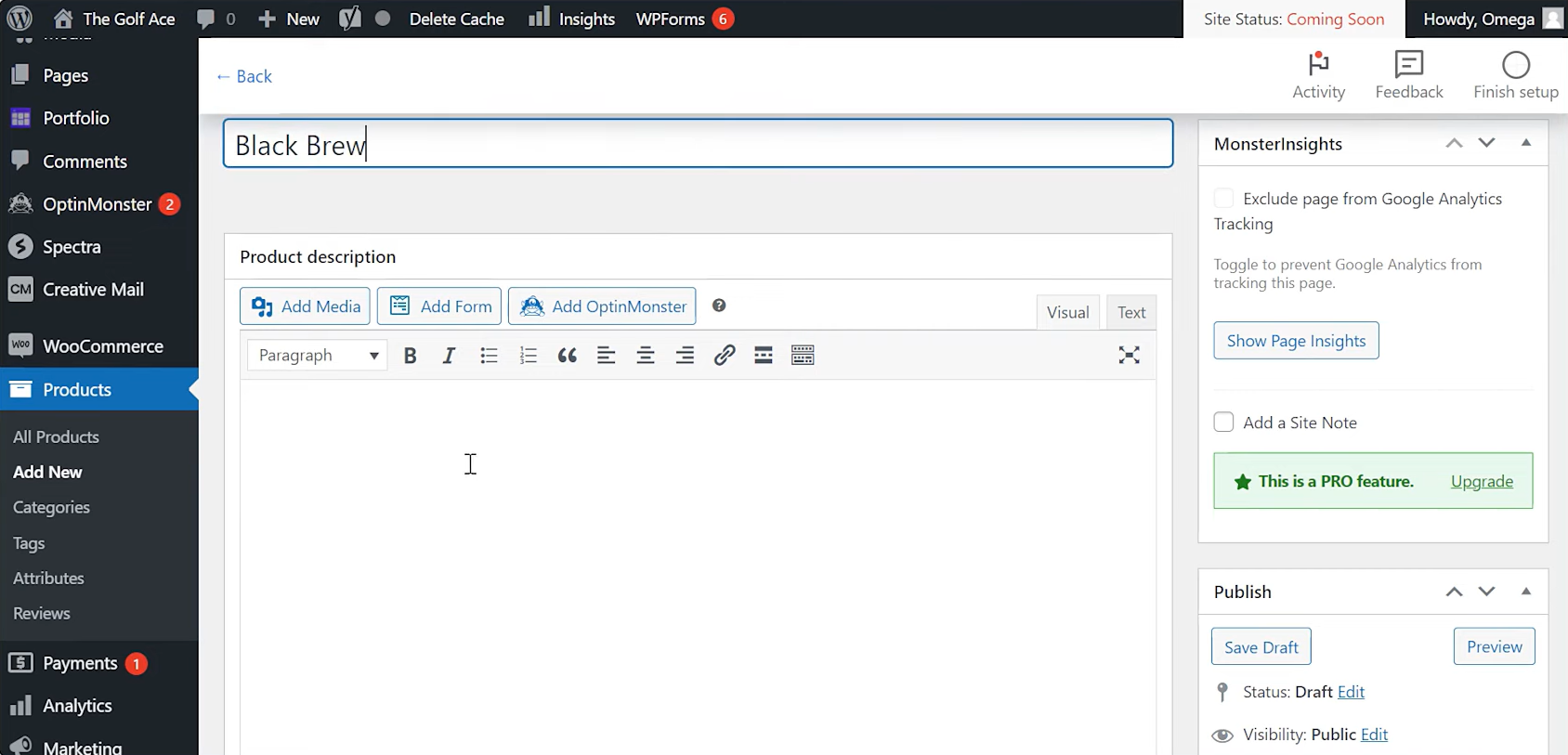
Ecommerce themes & templates
Weebly provides ecommerce-specific themes with a decent range of styles, offering built-in features like product galleries and optimized checkout flows. However, customization options are limited compared to dedicated platforms, with a smaller theme selection and less design flexibility.
BlueHost’s website builder for ecommerce provides a selection of specific templates designed to streamline the creation of online stores. These templates are optimized for sales, featuring designs that accommodate product galleries, shopping carts, and checkout processes. However, the customization options might be limited compared to more specialized ecommerce platforms.
Product page customization
Weebly allows a decent level of product page customization through its user-friendly interface, offering options for layout, colors, fonts, backgrounds, and content. Advanced customization, including custom CSS and app integrations, is available with paid plans, but limitations exist in design flexibility compared to dedicated platforms.
BlueHost’s website builder offers robust customization features for product pages, allowing users to tailor product details like titles, descriptions, images, and pricing according to their preferences. It supports the creation of product variants and options, facilitating the sale of items with multiple choices such as size, color, and material directly from the product page.
Payment processing
When it comes to payment processing, Weebly seamlessly integrates with popular payment processors such as Square, Stripe, PayPal, and others, enabling secure and convenient online transactions for your store. Users can choose their preferred gateway, set up payment processing within Weebly’s settings, and benefit from features like secure checkout and, on paid plans, options for recurring payments and international transactions.
BlueHost doesn’t directly support numerous payment gateways. However, it does integrate with WooCommerce, a platform that facilitates integration with various payment gateways like PayPal and Stripe. While BlueHost doesn’t impose transaction fees, the payment gateways might. Furthermore, it lacks Point of Sale (POS) capabilities.
Website Editors
Website EditorsEvaluates the platforms’ website building and editing capabilities.Score Components:
- Customization tools (40%): Range and power of editing features.
- Editor usability (30%): User experience within the editor.
- Design flexibility (20%): Freedom in layout and design changes.
- Update and maintenance ease (10%): Simplicity of updating and maintaining the site.
 7.6
7.6
 7.3
7.3
🏆
Winner: Weebly
. Weebly, with a score of 7.6, stands out for its drag-and-drop simplicity, catering to beginners with an intuitive interface and visual editing. The editor features a range of pre-designed templates, customization options, and content management tools, making it accessible for users without coding knowledge.
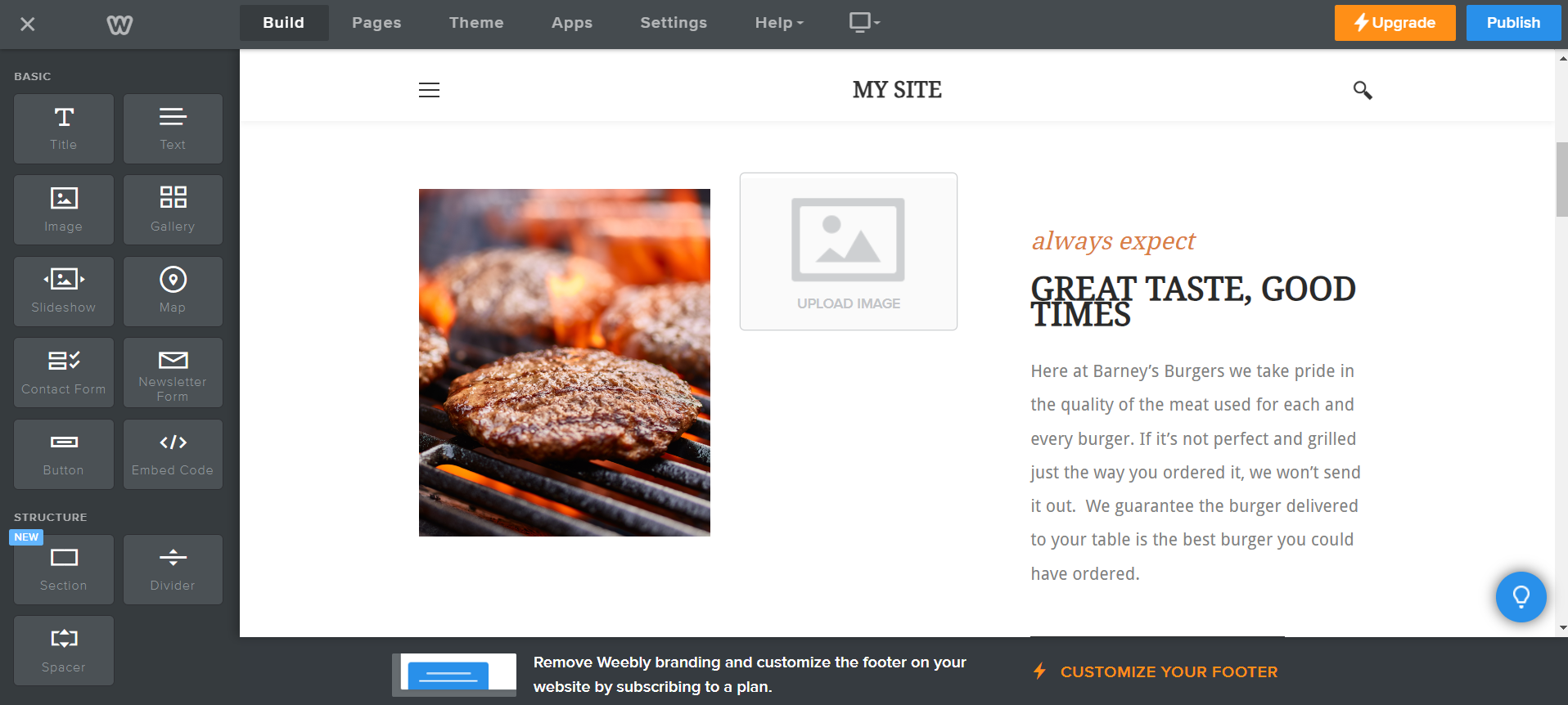
BlueHost’s website builder editor, scoring 7.3, is designed for ease of use, catering to both beginners and advanced users. It offers a section based drag-and-drop interface, allowing users to easily add, remove, and customize elements on their website without needing to code. Users can choose from a wide range of templates and customize them to fit their brand, including adjusting layouts, colors, and fonts.
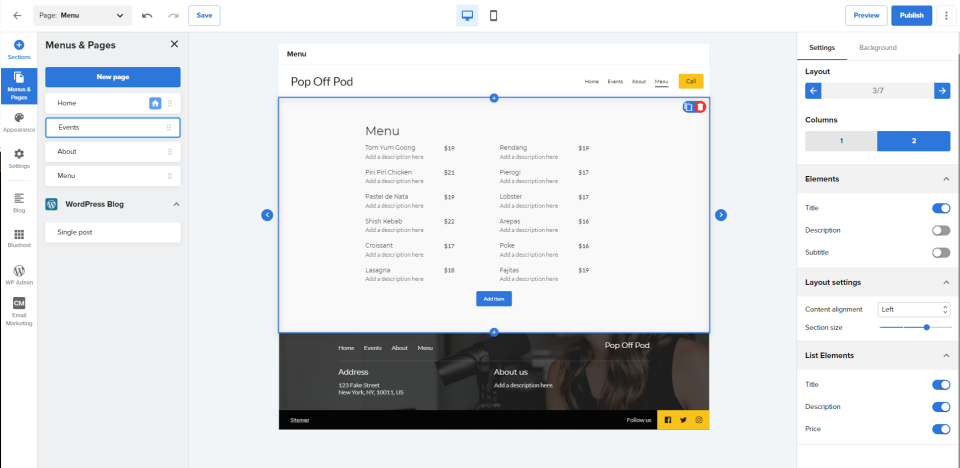
Mobile editor/app
 8.1
8.1
 5.0
5.0
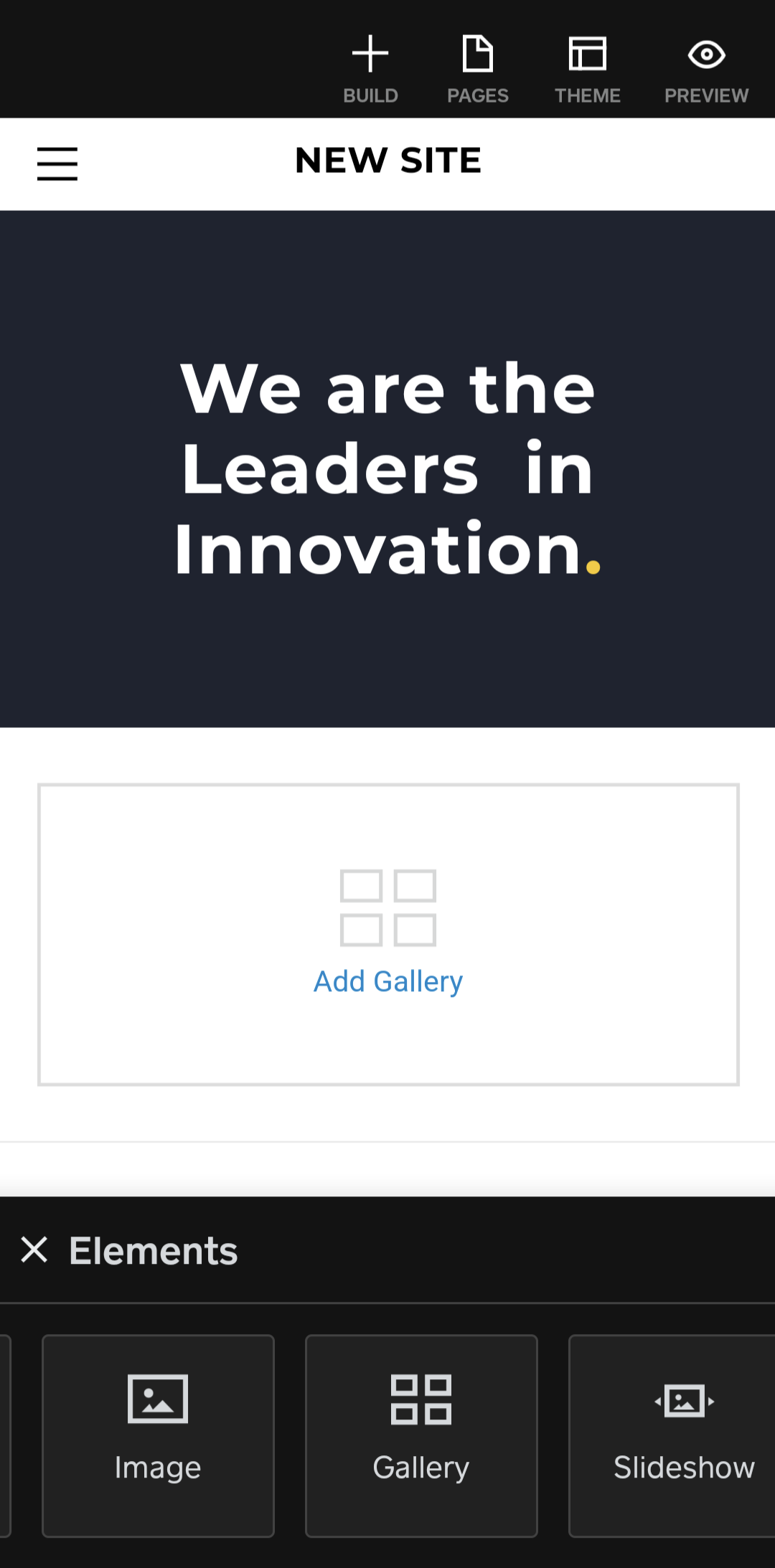
🏆
Winner: Weebly
. Both Weebly and BlueHost offer mobile editing capabilities, but they cater to different needs and skill levels. Weebly has a dedicated mobile app that allows users to manage and make basic edits to their websites on the go. While it offers features like content management and basic design customization, it has limitations, such as no advanced editing capabilities or extensive design flexibility, making it best suited for quick content updates rather than major design changes.
BlueHost, on the other hand, does not have a dedicated mobile editor app. However, users can edit their website on a mobile browser, with some limitations. This might be less convenient compared to a dedicated app, especially for users who frequently need to make changes on the go.
In summary, Weebly receives a higher rating due to its dedicated mobile app and the convenience it offers, while BlueHost’s lack of a dedicated mobile app might be a drawback for some users.
Product testing options
Product Testing OptionsAssesses the options for trying out platform features before commitment.Score Components:
- Trial quality (40%): Extent and usefulness of the trial or free version.
- Feature accessibility (30%): How many features are available to test.
- Trial duration (20%): Length of the trial period.
- Ease of transition (10%): Smoothness of moving from trial to paid plans.
 8.3
8.3
 6.2
6.2
Overall Result
:
Weebly Wins
. Weebly scores 8.3 in product testing options, while BlueHost scores 6.2. Weebly offers a free version and a 30-day money-back guarantee for all paid plans, allowing users to explore all the features and get a full refund if not satisfied. BlueHost, on the other hand, does not offer a free version or trial, but allows testing of premium features within a 30-day refundable period.

|

|
|
|---|---|---|
|
Free Plan |
Yes |
No |
|
Trial Duration |
No (30-day money back guarantee) | No (30-day money back guarantee) |
|
Testing Premium Features |
Yes |
Yes |
Price
PriceLooks at the cost-effectiveness and value for money of each platform.Score Components:
- Plan value (40%): What each pricing tier offers.
- Transparency and clarity (30%): Clearness of pricing structures.
- Flexibility of plans (20%): Range of options to suit different budgets.
- Hidden costs (10%): Additional expenses not included in the plan.
 8.4
8.4
 7.2
7.2
Weebly and BlueHost offer a range of pricing options, with BlueHost providing more extensive features for higher-tier plans.

|

|
|
|---|---|---|
|
Free |
Free ($0/month): Basic template selection, 500MB storage, Weebly ads, limited features. |
No offering at this amount. |
|
$0-$10 |
Personal ($6/month): Custom domain, unlimited storage, ad-free, limited SEO and email marketing tools. Value for price: 6.5 |
No offering at this amount. |
|
$10-$20 |
Professional ($12/month): Advanced design options, blog membership features, advanced SEO tools, form analytics. Value for price: 7.5 |
Basic ($15.99/month): Made for a simple website or blog, 1 website with 10GB SSD storage, Free CDN, Free Domain 1st year, Managed WordPress Hosting, Free SSL 1st year and Chat Support. Value for price: 6.5 |
|
$20-$30 |
Performance ($26/month): Advanced ecommerce features, lead capture tools, custom code injection, marketing automation. Value for price: 8.5 |
Choice Plus ($27.99/month): Ideal for multiple sites needing storage, security, backups, 3 websites with 40GB SSD storage, Free CDN, Free Domain 1st year, Managed WordPress hosting, Free SSL, Free Domain privacy 1st year, Malware scanning, daily site backups are free for the 1st year with the purchase of a 12 or 36-month package. Otherwise, users are required to pay a one-time fee of $35.88 for backup services. Value for price: 7.5 |
|
$30-$35 |
No offering at this amount. |
Online Store ($32.99/month): Great for all online selling, built-in eCommerce tools, 3 websites with 40GB SSD storage, Free CDN, Free Domain 1st year, Managed WordPress hosting, Free Domain privacy 1st year, Malware Scanning, Exclusive Theme Store, Store Analytics, Unlimited products, Secure Payment options, Bookings & appointments, Shipping labels, product search and filtering, daily site backups are free for the 1st year with the purchase of a 12 or 36-month package. Otherwise, users are required to pay a one-time fee of $35.88 for backup services. Value for price: 8.5 |
|
$35+ |
No offering at this amount. |
Pro ($39.95/month): Perfect for high traffic, advanced storage, security, 5 websites with 100GB SSD storage, Free CDN, Free Domain 1st year, Managed WordPress hosting, Free SSL, Free Domain privacy 1st year, Malware Scanning, daily site backups are free for the 1st year with the purchase of a 12 or 36-month package. Otherwise, users are required to pay a one-time fee of $35.88 for backup services. Value for Price: 9.0 |
location. As a result in rare cases the prices displayed here can differ from the ones you see on their
websites.
Hosting quality
Hosting
qualityExamines the reliability and performance of the hosting solutions.Score Components:
- Uptime (40%): Consistency and reliability of website availability.
- Speed (30%): Loading times and performance.
- Bandwidth and storage (20%): Sufficiency of resources provided.
- Data centers (10%): Quality and distribution of hosting infrastructure.
 7.7
7.7
 8.0
8.0
Winner: BlueHost
. BlueHost edges out Weebly with a slightly higher hosting quality score. Both offer a variety of hosting types and have a 99.9% uptime, but BlueHost’s managed WordPress hosting and technologies for fast load times give it an advantage. Weebly, while offering unlimited storage and bandwidth on its paid plans, has been critiqued for slow page loading times.

|

|
|
|---|---|---|
|
Do they offer hosting? |
Yes, included in all paid plans |
Yes, offers a range of hosting options |
|
Data Centers: |
Weebly leverages a global network of data centers to deliver reliable and efficient website hosting. However, they do not publicly disclose, the specific locations of their data centers due to security and technical reasons. |
6 data centers: Orem and Provo, Shanghai, Mumbai and Hong Kong, London |
|
Type of hosting: |
Shared Hosting, Cloud Based Hosting, Managed Hosting |
Managed WordPress Hosting |
|
Uptime: |
99.9% |
99.9% |
|
Uptime Guarantee: |
Yes, 99.95% |
Yes, 99.9% |
Website Speed Optimization
Website Speed OptimizationEvaluates optimization of website loading timesScore Components:
- PageSpeed Score (30%): Google’s score indicating performance optimization.
- Loading Time (30%): The average time until a website is fully interactive.
- Mobile Optimization (15%): Optimization effectiveness for mobile devices.
- Resource Optimization (15%): Optimizing images, scripts, and other heavy resources.
- CDN Usage (10%): Use of CDN to enhance speed across geolocations.
 7.9
7.9
 6.5
6.5
🏆 Winner: Weebly
Both Weebly and BlueHost prioritize website performance and page speed, with Weebly focusing on load balancing and CDN, and BlueHost emphasizing CDN and server optimization. However, Weebly has a slight edge when it comes to website speed optimization.

|

|
|
|---|---|---|
|
Focus |
Load balancing, CDN |
CDN, Server Optimization |
|
Performance Tools |
Google Lighthouse, PageSpeed Insights |
Google PageSpeed Insights Integration |
|
Key Strategies |
Load balancing, CDN |
CDN, Server Optimization |
|
Load Times |
2s to 4s |
Varies widely, depending on optimization |
|
Page Speed Scores Range |
Average 80+/100 |
Varies widely, depending on optimization |
|
Core Web Vitals Improvement |
Significant enhancements |
Emphasis on LCP, FID, CLS improvements |
Weebly has significantly enhanced its Core Web Vitals performance by implementing measures such as automatic image optimization, lazy loading for content, code minification, and caching. These improvements, along with streamlined JavaScript usage and an enhanced server infrastructure, aim to boost website loading speed and responsiveness. The load times for Weebly range from 2s to 4s, with an average PageSpeed score of 80+/100.
On the other hand, BlueHost places emphasis on LCP, FID, and CLS improvements for Core Web Vitals. The load times and PageSpeed scores for BlueHost vary widely, depending on the optimization and website complexity. Despite these efforts, BlueHost falls slightly behind Weebly in terms of website speed optimization.
Get a head start on website creation with AI
Create a custom website tailored to your business needs 10X faster with 10Web AI Website Builder!
Plugins and integrations
Plugins and integrationsMeasures the range and effectiveness of additional plugins and integrations.Score Components:
- Variety of options (40%): Range of available add-ons.
- Integration smoothness (30%): Ease of integrating plugins into the site.
- Quality of plugins (20%): Functionality and reliability of the options.
- Custom integration capabilities (10%): Support for custom or third-party integrations.
 7.5
7.5
 9.1
9.1
🏆 Winner: BlueHost.
With a score of 9.1, BlueHost takes the lead in this category. Its integration with WordPress opens up a vast ecosystem of plugins and extensions, ranging from SEO tools and e-commerce solutions to social media integrations. Weebly, scoring 7.5, also offers a variety of plugins through its App Center, but the sheer volume and diversity of options available with BlueHost give it the edge in this category.
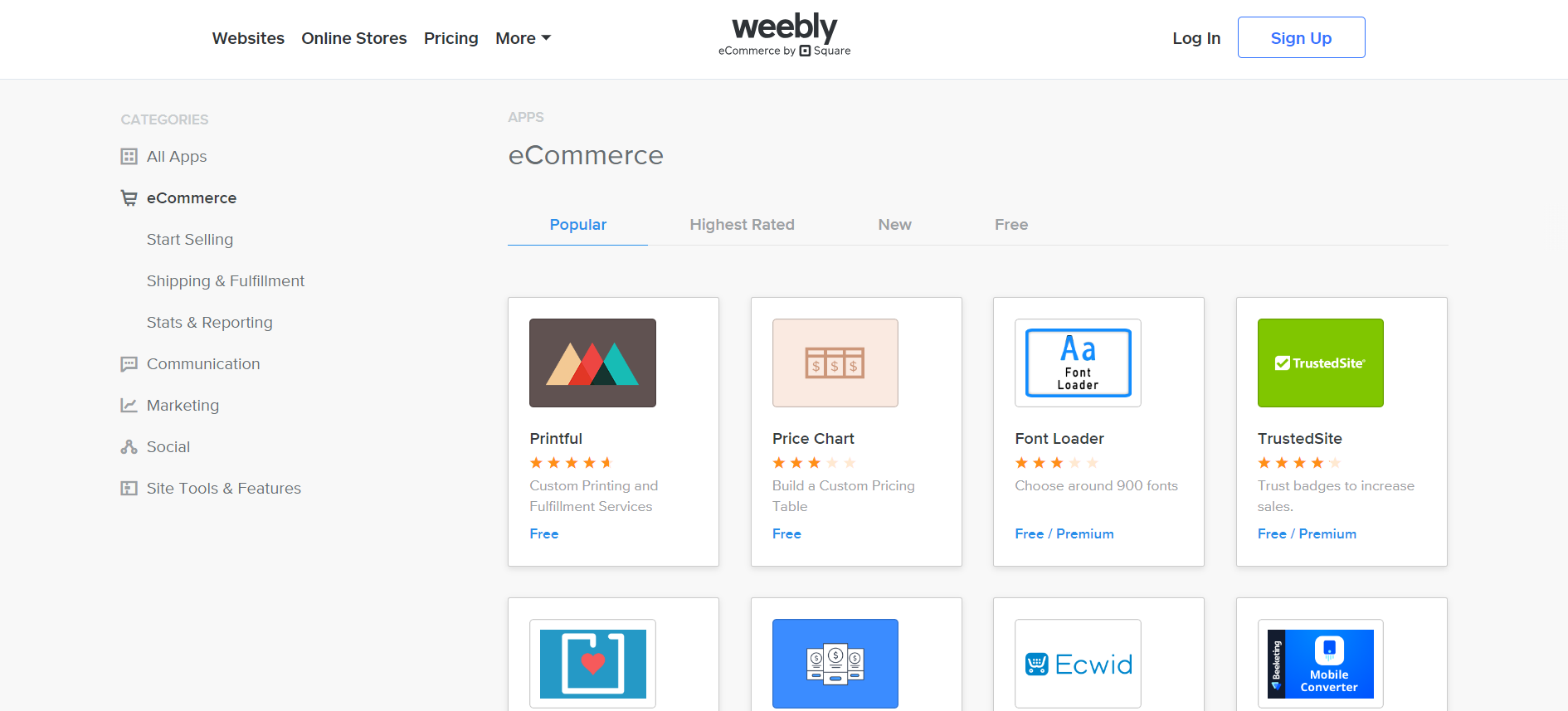
Marketing Features
Marketing featuresAssesses tools and options available for marketing.Score Components:
- SEO tools (40%): Effectiveness of SEO features.
- Marketing automation (30%): Availability and quality of marketing tools.
- Social Media integration (20%): Ease and depth of social media connectivity.
- Email marketing (10%): Quality and usability of email marketing tools.
 7.1
7.1
 7.3
7.3
🏆
Overall Winner: BlueHost
. BlueHost edges out Weebly with a slightly higher score in marketing features, offering a comprehensive suite of tools through its integration with WordPress.

|

|
|
|---|---|---|
|
SEO Tools |
|
|
|
Email Marketing |
|
|
|
Blogging |
|
|
|
Social Media Integration |
Easy link to social media accounts and share buttons |
Yes, through WordPress plugins |
|
Analytics and Reporting |
Built-in analytics for tracking site performance |
Yes, integration of Google Analytics |
|
Ads and Promotions |
Integrated marketing tools for creating and managing ads |
Yes, through WordPress plugins |
Customer Support
Customer supportEvaluates the quality and availability of support options.Score Components:
- Response time (40%): Speed of support responses.
- Support quality (30%): Effectiveness and helpfulness of the support.
- Availability (20%): Range of support channels (phone, chat, email).
- Resource richness (10%): Quality of self-help and educational materials.
 7.3
7.3
 7.6
7.6
🏆 Winner: BlueHost
. BlueHost edges out Weebly with a slightly higher customer support score of 7.6 compared to Weebly’s 7.3. BlueHost offers 24/7 customer support, including chat and phone support for general inquiries, with specific hours for account verification, renewals, and cancellations. Technical assistance is available from 7 a.m. to midnight EST, seven days a week, via phone or by opening a Help Ticket for email support.
Weebly, on the other hand, offers a variety of support options, including an extensive Online Help Center with articles and tutorials, a Community Forum for peer-to-peer assistance, and Email Support for submitting tickets. Live Chat is available during limited hours, and Phone Support is offered to Pro and Business plan users in the US and Canada during specific hours. The Online Help Center and Community Forum are accessible 24/7.
Security
SecurityLooks at the platforms’ security measures and data protection.Score Components:
- Data protection (40%): Safeguards for user and customer data.
- SSL and encryption (30%): Implementation of secure connections.
- Compliance (20%): Adherence to industry security standards.
- Regular updates (10%): Frequency of security updates and patches.
 8.3
8.3
 8.3
8.3
🏆
Winner: It’s a tie
. Both Weebly and BlueHost have a security score of 8.3, indicating a strong commitment to security.
Weebly prioritizes user data privacy and security, with measures such as secure data centers, encryption, access controls, and regular backups. It also provides strong password security, two-factor authentication, and user data management. For website security, Weebly employs secure data centers, routine system updates, SSL encryption, PCI compliance, automatic malware scans, spam prevention measures, robust password protection, optional two-factor authentication, and user permission controls.
BlueHost, on the other hand, prioritizes data protection through SSL certificates, regular backups, and additional security features like SiteLock for malware scanning. It complies with data protection regulations and is committed to privacy. For website security, BlueHost offers free SSL certificates, automated backups, secure configuration options and plugins, 24/7 monitoring, and malware scanning and removal processes.
Both builders provide a secure and reliable environment for website creation and hosting.
AI Capabilities
AI capabilitiesMeasures the effectiveness of AI-driven features and tools.Score Components:
- Automation efficiency (40%): Impact of AI on streamlining processes.
- Personalization (30%): AI-driven customization for users or customers.
- AI-Assisted design (20%): Role of AI in website design and functionality.
- Data analysis (10%): Use of AI in interpreting user data and analytics.
 1.8
1.8
 1.5
1.5

|

|
|
|---|---|---|
|
Personalized Design |
|
|
|
SEO Optimization |
|
|
|
Customer Behavior Analysis |
|
|
|
Sales Predictions |
|
|
|
Inventory Management |
|
|
|
Content Generation |
Third-party tools available for AI-powered content creation |
Supports integration of AI content generation WordPress plugins |
🏆 Winner: Tie
. Both Weebly and BlueHost lack dedicated AI capabilities. However, they both allow for the integration of third-party tools and plugins that can provide AI-powered features. Weebly users can utilize tools like Jasper and Copy.ai for AI-powered content creation, while BlueHost users can take advantage of AI content generation plugins available for WordPress. Despite these options, the AI capabilities of both platforms are not a significant part of their offerings, as reflected in their low AI capabilities scores of 1.8 and 1.5 respectively.
User Management
User ManagementAssesses the platforms’ capabilities in managing user roles, permissions, and accessibility.Score Components:
- Role Customization (40%): Flexibility in creating and defining user roles and
permissions. - Ease of Management (30%): User interface and tools for managing users.
- Access Control (20%): Effectiveness of access control measures for different user
levels. - Scalability (10%): Ability to manage a growing number of users efficiently.
 6.5
6.5
 4.4
4.4
🏆 Winner: Weebly
. Weebly and BlueHost offer different approaches to user management.
- Weebly allows a varying number of users to edit a website depending on the plan selected. The Free Plan allows only one user, suitable for personal or simple projects, while the Personal Plan accommodates two users, making it appropriate for small businesses or collaborative efforts. The Professional Plan permits up to 10 users, catering to growing businesses or teams with specific roles, and the Business Plan offers unlimited user access.
- BlueHost does support multi-user management, however, there’s no mention about the number of users or their roles and permissions.
Weebly User Roles and Access Levels:
| Role | Description | Access Highlights |
|---|---|---|
| Owner | The primary account holder and creator of the Weebly site. | Full access to all site features, including design, pages, settings, store management, and analytics. |
| Admin | Users granted significant control over the site by the Owner. | Can edit and publish site content, manage store orders, view analytics, and access most site settings, except for site ownership transfer and account deletion. |
| Author | Users with limited permissions, typically focused on content creation. | Can create and edit blog posts, manage comments, and sometimes edit specific pages if granted permission. |
| Store Manager | Specifically focused on e-commerce aspects of the site. | Access to manage and fulfill orders, view store analytics, and edit product details, but cannot change site design or settings. |
Additional Features

|

|
|
|---|---|---|
|
SSL Certificate |
|
|
|
Custom Domain |
|
|
|
Free Custom Domain Included |
|
|
|
International Domains |
|
|
|
Mobile Responsive |
|
|
|
Page Speed |
|
|
|
Website Builder Mobile App |
|
|
|
Convert a Website To An App |
|
|
|
Website Analytics |
|
|
|
Multilingual Sites |
|
|
|
Multiple Users |
|
|
User Feedback
Square Online (formerly Weebly) receives positive reviews for its user-friendly drag-and-drop interface and quick website development features, making it suitable for small businesses. Users highlight its role in efficient appointment booking, saving time in coordination and scheduling. However, some express a desire for more advanced building tools and better pricing. The platform is recognized for streamlining website and payment operations, though opinions on customer service and design limitations are mixed. Overall, it is considered a good, affordable solution for small businesses.
Users appreciate Bluehost for its comprehensive free offerings, including SSL, subdomains, and custom email, along with additional services like free domain registration and CDN. The platform’s intuitive interface and user-friendly website builder cater to both beginners and experienced developers. However, concerns arise regarding the significant price increase upon renewal, limited free website templates, and unresolved technical issues with poor customer support, hindering users’ ability to effectively manage their websites and businesses. Addressing these concerns could enhance overall user satisfaction with Bluehost.
The making of this blog
We followed a clear, step-by-step process to write and research this article.
FAQ
Which platform is better for beginners, Weebly or BlueHost?
Can I use both Weebly and BlueHost for ecommerce?
How do Weebly and BlueHost differ in terms of customization and design flexibility?
What are the major differences in pricing and value between Weebly and BlueHost?
Which platform offers better customer support, Weebly or BlueHost?










